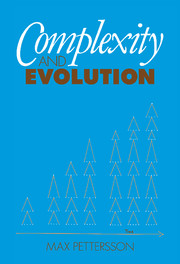Book contents
- Frontmatter
- Contents
- Foreword by Joseph Needham, FRS
- Preface
- Acknowledgements
- 1 Natural and other hierarchies
- 2 Major integrative levels
- 3 Some logarithmic forms of display
- 4 Physical range of integrated natural entities
- 5 Biological range of integrated natural entities (first part)
- 6 Biological range of integrated natural entities (second part)
- 7 Social range of integrated natural entities
- 8 Human societies (first part)
- 9 Human societies (second part)
- 10 Acceleration in evolution
- 11 Further allied accelerations
- 12 Aspects of number
- 13 Aspects of mass
- 14 Positive skewness
- 15 Quantitative conclusions
- Bibliography
- Index
Foreword by Joseph Needham, FRS
Published online by Cambridge University Press: 18 January 2010
- Frontmatter
- Contents
- Foreword by Joseph Needham, FRS
- Preface
- Acknowledgements
- 1 Natural and other hierarchies
- 2 Major integrative levels
- 3 Some logarithmic forms of display
- 4 Physical range of integrated natural entities
- 5 Biological range of integrated natural entities (first part)
- 6 Biological range of integrated natural entities (second part)
- 7 Social range of integrated natural entities
- 8 Human societies (first part)
- 9 Human societies (second part)
- 10 Acceleration in evolution
- 11 Further allied accelerations
- 12 Aspects of number
- 13 Aspects of mass
- 14 Positive skewness
- 15 Quantitative conclusions
- Bibliography
- Index
Summary
The concept of integrative levels was one which I introduced, stimulated by various predecessors, in the Herbert Spencer Lecture which I gave at Oxford in 1937, over half a century ago.
Several dozen authors have subsequently used the idea of different integrative levels. Their discrimination of integrative levels has often used the ‘compositional criterion’; but the present work by my old friend Max Pettersson is unique in also introducing a ‘duality criterion’, for the discrimination of major levels. One of the agreeable results of this is that we now find an excellent match between the relatively static hierarchy of things present today, and the evolutionary progression to more and more complex entities which has occurred on Earth during the past 4000 million years.
Having established a series of nine major integrative levels, various quantitative studies have now become possible for the first time. Perhaps most or all of the twenty or so newly discovered quantitative conclusions will be found to remain valid. For readers a generation or two hence, it will be very interesting to notice how much further such studies have developed and ramified.
Information
- Type
- Chapter
- Information
- Complexity and Evolution , pp. ix - xPublisher: Cambridge University PressPrint publication year: 1996
